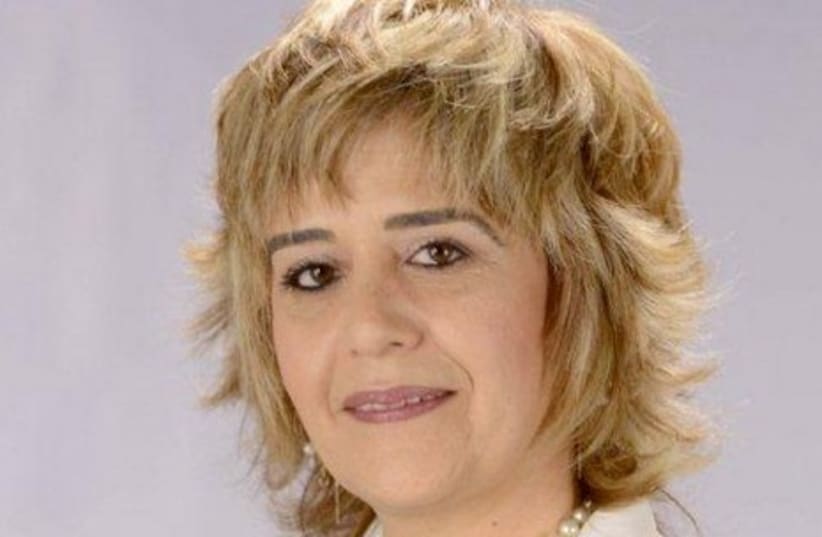Peretz Cohen works both in providing professional treatment to victims, and increasing education and public awareness of the phenomenon of sexual violence and its prevention.
"You don't get up every morning and pat yourself on the back," she tells The Jerusalem Post.
Peretz Cohen became Director of the Center for Victims of Violence in the Galilee and Golan Heights after she became absorbed by the cause through volunteer work at the center. "I quickly became the most active volunteer. The center was in nappies at the time and then they offered me to work there. The idea of the place really captured me."
She says that fourteen years ago there were big gaps between what the center offered compared with other services around the country. She worked in a team of six women, alongside another 80 volunteers and despite challenges in raising the funds, today she feels they have closed any gaps that previously existed. Peretz Cohen explains that the issue of sexual violence is a difficult one to market, "because if you don't talk about it, then it doesn't happen. When we go to schools to educate the students on the topic, after every workshop we are approached by girls and boys who now understand that what happened to them was sexual abuse. So this creates the feeling that after we visit, there is a balagan (chaos) and before that, they [the schools] didn't need to deal with it."
"You can look at it in two ways," she continues. One is the latter, and the other is to appreciate that the organization is raising awareness and enabling dialogue on a difficult topic, that children who were hurt can be identified and future incidents can be prevented. "It's a difficult topic to swallow and some people prefer not to touch it."
She also emphasizes the importance of bringing more men into this arena of work. "Sexual violence is an issue of both men and women, and when more men will cooperate with us, we will succeed more," she opines. "Every man has a wife, sister, mother."
She says there are already more men active in the field than before and those men are very valuable. "When men join us in hasbara, the boys in the group are more open to listening, rather than to a group of women whom they may think of as radical feminists."
Peretz Cohen says she feels great pride in her nation and its path of history, and hopes to see real social change in many sectors, in addition to her own field. "Independence Day reminds us that this is our home and we must preserve it and do all we can to create a society of respect and equality."
Read the personal stories of the other torch-lighters here:Actress and Holocaust survivor Miriam ZoharHead of National Student Council Gal Yosef
Tennis star Shahar Pe'erIntel CEO Maxine FassbergParalympic hero Pascal Bercowitch Military reporter Carmela MenasheBereaved mother Miriam PeretzScientist Dr. Kira Radinsky
Tennis star Shahar Pe'erIntel CEO Maxine FassbergParalympic hero Pascal Bercowitch Military reporter Carmela MenasheBereaved mother Miriam PeretzScientist Dr. Kira Radinsky
